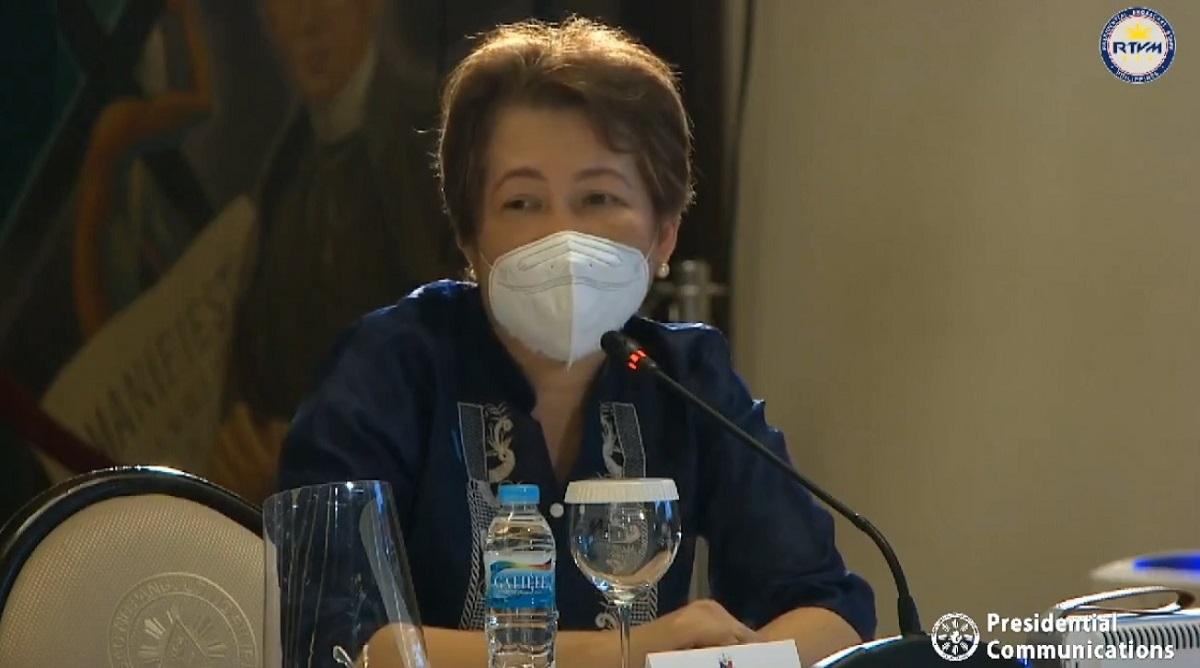
The Philippine Genome Center (PGC) said on Sunday that all samples sequenced from November and December among travelers in Omicron-affected countries were Delta COVID-19 variant cases, aside from one which carried the B.1.1.203 variant.
“Last week, we sequenced about 574 and doon sa ating nai-sequence na ‘yon, puros naman ‘yon Delta. Tapos, gumawa rin tayo ng kung baga emergency run kasi may mga samples na nanggaling sa airport, at sa ating lumabas na sequencing, halos lahat naman doon Delta except na merong B.1.1.203,” PGC Executive Director Dr. Cynthia Saloma said during a SuperRadyo dzBB interview.
(Last week, we sequenced about 574 and all those are Delta. We have also conducted an emergency run from samples obtained in the airport, and all those are also Delta except for one with B.1.1.203 variant.)
She however clarified that the B.1.1.203 variant is not a variant of concern nor a variant of interest, except that it came from the “B lineage”.
“‘Pag sinabi natin kasi na lineage na hindi naman (when we say that the lineage is not a) variant of concern, most likely hindi naman siya nagco-contain ng mutations na (it does not contain mutations that are) concerning,” she said.
“It’s a B.1.1.203, but it’s not classified as either a variant of concern or variant of interest sa dahilan na hindi naman siya nagkakaroon ng mga mutations kung saan parang you would think na meron siyang changes in transmissibility, wala namang ganoon (because it does not have mutations that would change transmissibility),” she added.
The Department of Health (DOH) said Saturday that none of the over 250 travelers from South Africa, who arrived in the country from November 15 to 29, tested positive for the Omicron variant.
They noted that the traveler detected with the B.1.1.203 COVID-19 variant arrived in the Philippines on November 16 and the test result came in on November 21.
Saloma added that PGC’s sequencing does not only come from airports but also in regions that have clusters of infections which, according to her, are mostly Delta variants.
On August 16, Saloma said that the more transmissible Delta variant has overtaken the other variants detected in the Philippines and is now considered as the dominant variant in the country.
She however said that it is not safe to say that other variants evolving after the Delta variant are less severe without enough clinical data.
“Kaya kailangan talaga nating pagaralan nang mabuti. That’s why nakita natin, for example, itong Omicron with so many mutations in the spike region. Ito ang sinasabi nating ‘the most evolved SARS-CoV-2 virus today’ itong Omicron kasi mga 50 mutations,” she said.
(This is why we need to study them carefully. With this, we have discovered Omicron that has so many mutations in the spike regions. This is what we call “the most evolved SARS-CoV-2 virus today” as it has about 50 mutations.)
New genome centers
Further, Saloma said that the Department of Budget and Management (DBM) approved the funding of the genome sequencing equipment for the new genome centers that will be established in the Visayas and Mindanao.
She said that PGC also hired additional people in these new genome centers, with 10 people in each laboratory. These new hires are graduates from programs such as molecular biology and bioinformation.
“Kahit hindi pa dumating ‘yung equipment, ‘yung ating mga staff ng PGC, pumunta na sa atin dito last month sa Manila at na-training na natin sila sa workflow kasi syempre this is a very highly contagious virus tsaka madami ise-sequence nila,” she said.
(Even if the equipment has not yet arrived, our staff in PGC already arrived last month in Manila and we’ve trained them in the workflow because of course, this is a highly contagious disease and they will sequence lots of samples.)
— DVM, GMA News

0 Comments